Hotel AC Technician / HVAC Mechanic Duties And Responsibility
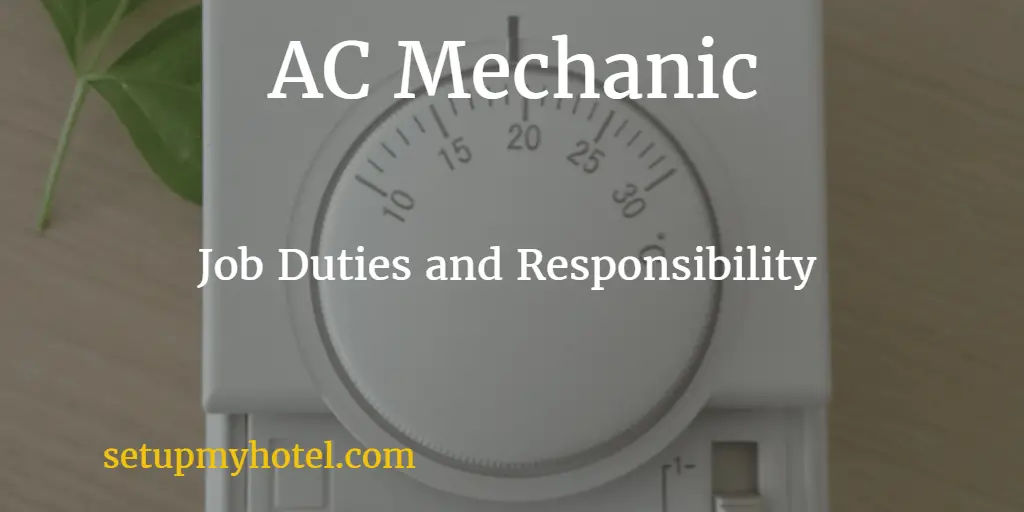
Job Description, Duties, Interview Questions and Salary for HVAC Technician in Hotel As an HVAC technician working in hotels, your ...
Read more
SOP – Engineering – Checklist – Guest Room Preventive Maintenance

Guest Room Preventive Maintenance Preventive maintenance is essential in ensuring that hotel guest rooms are always in top condition. It ...
Read more
SOP – Engineering – Equipment Maintenance and Repair Standard
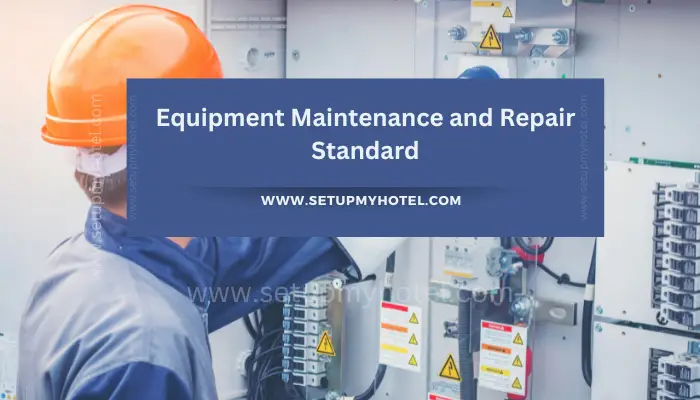
Standard Operating Procedure for Engineering – Equipment Maintenance and Repair Standard 1. Purpose: Clearly state the purpose of the Equipment ...
Read more
SOP – Engineering – Remote Control/Keyboard Battery Replacement and Cleaning
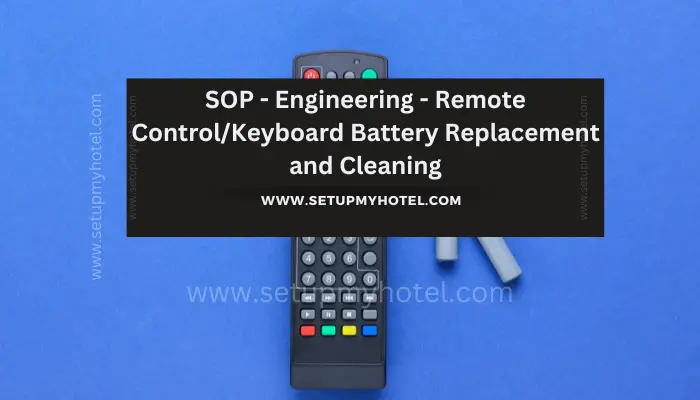
Remote Control/Keyboard Battery Replacement and Cleaning Remote controls and keyboards are common items found in hotel rooms, and they are ...
Read more
Communicating Maintenance Work
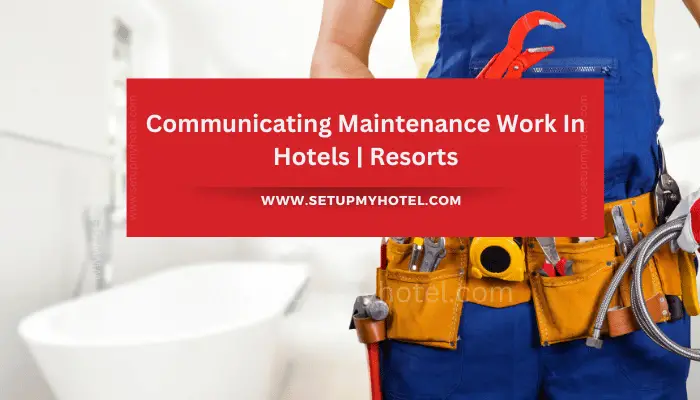
How To Effectively Communicating Maintenance Work In Hotels Effective communication is crucial in any workplace, especially when it comes to ...
Read more
Types Of Maintenance Work
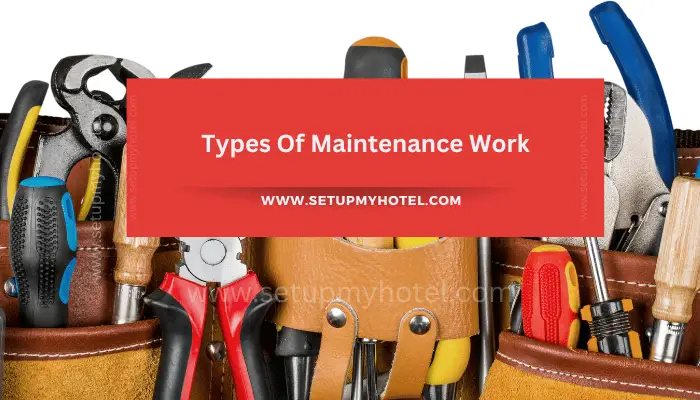
Common Maintenance works in Hotel guest rooms Maintenance work is an essential part of keeping any equipment or property in ...
Read more
Swimming Pool Technician / Pool Cleaner – Job Description
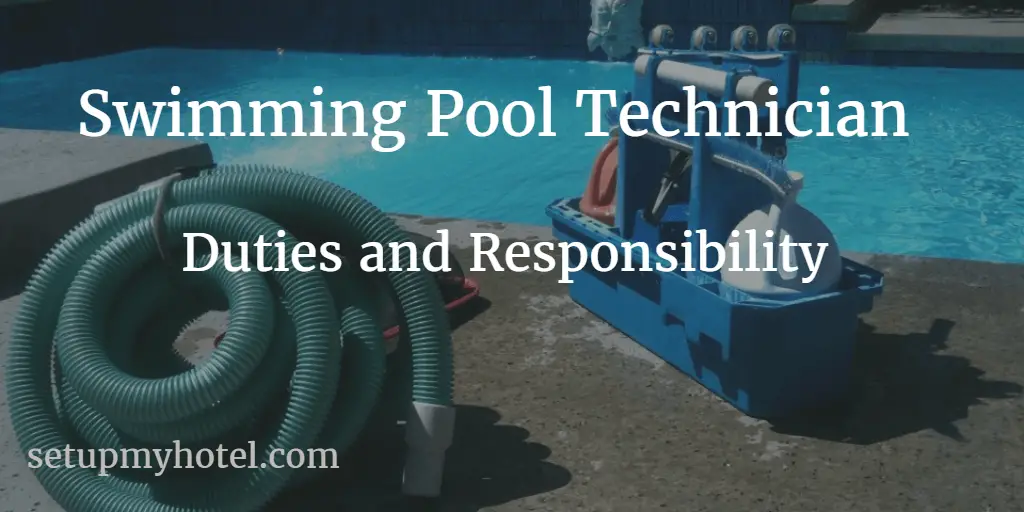
Job Description, Duties, Interview Questions and Salary for Swimming Pool Mechanic A swimming pool Technician / Mechanic is responsible for ...
Read more
Maintenance Work Order / Request Form Sample – Hotels | Engineering Maintenance
Maintenance work order form used in housekeeping In hotels, engineering and maintenance personnel begin their shift work by examining the ...
Read more
Maintenance Reasons And Code For Guest Rooms
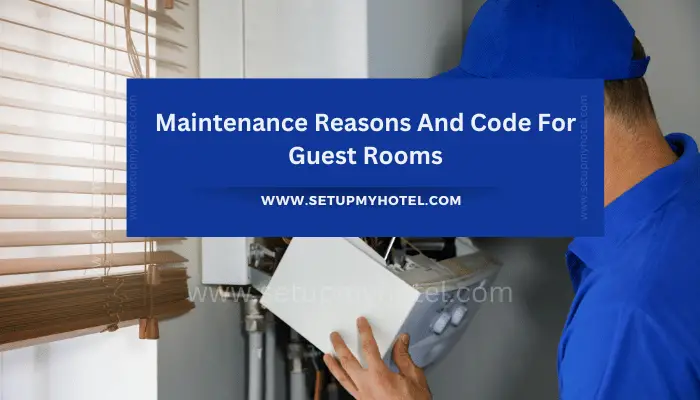
Room Maintenance Reasons used in hotel software’s Regular maintenance is essential to ensure that guest rooms remain in top condition ...
Read more
Hotel Chief Engineer (CE) / Engineering Manager Job Description
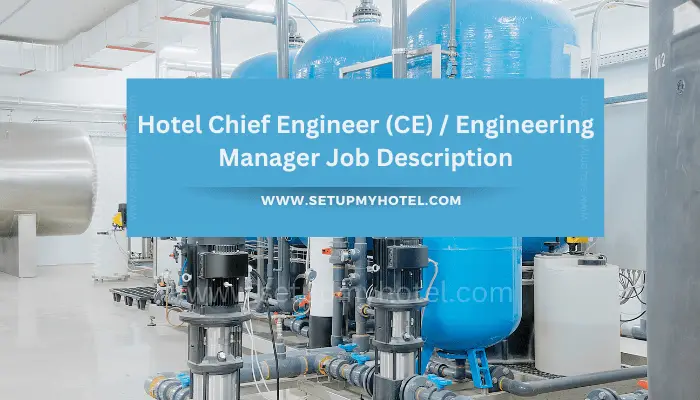
Job Description, Duties, Interview Questions and Salary for Chief Engineer in Hotels The Hotel Chief Engineer, also known as the ...
Read more










